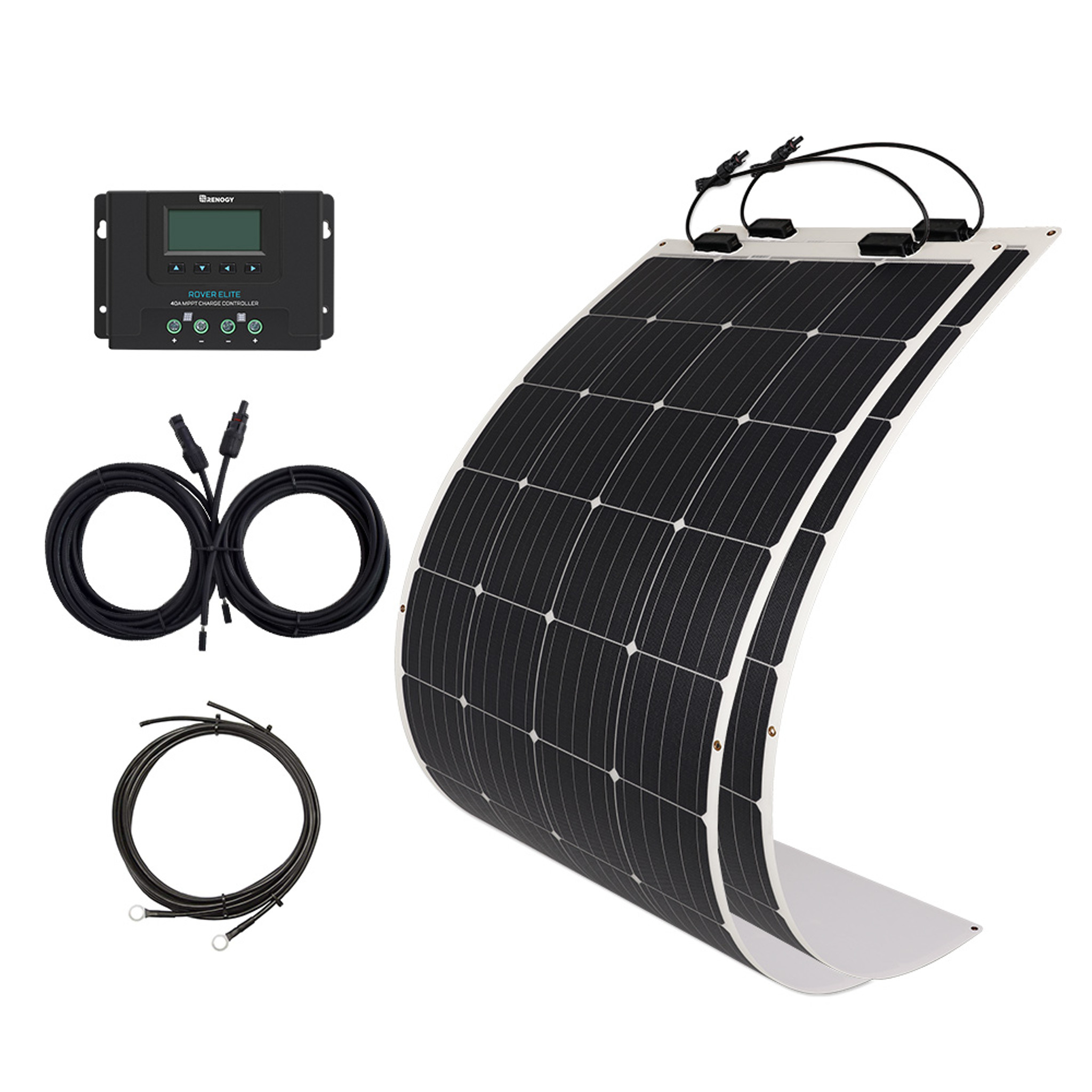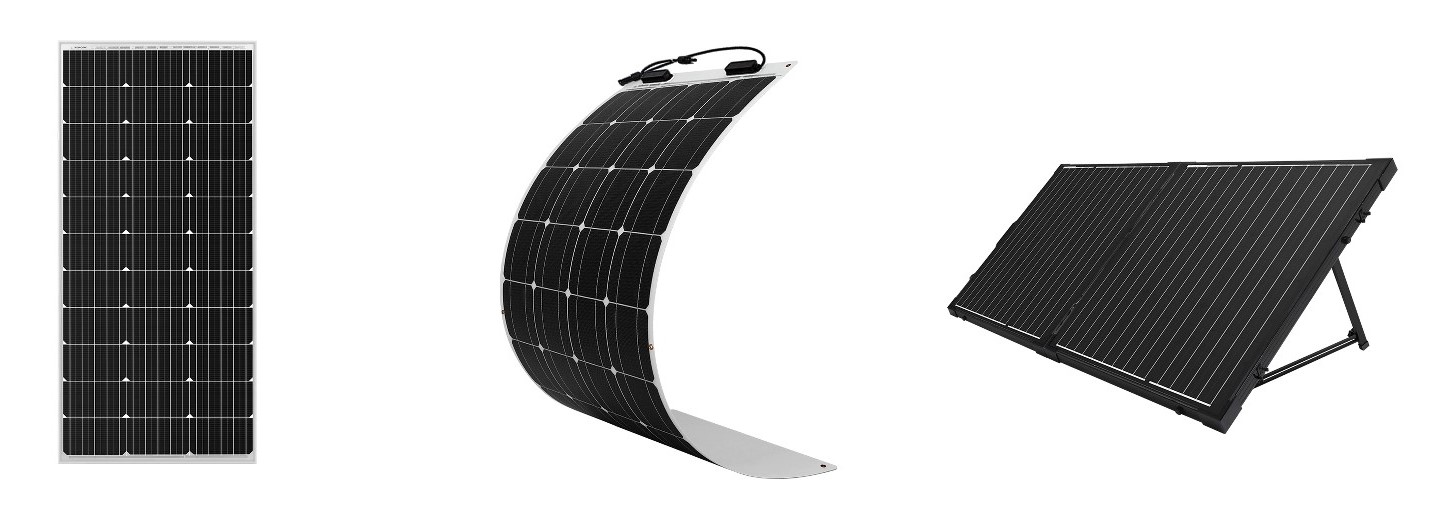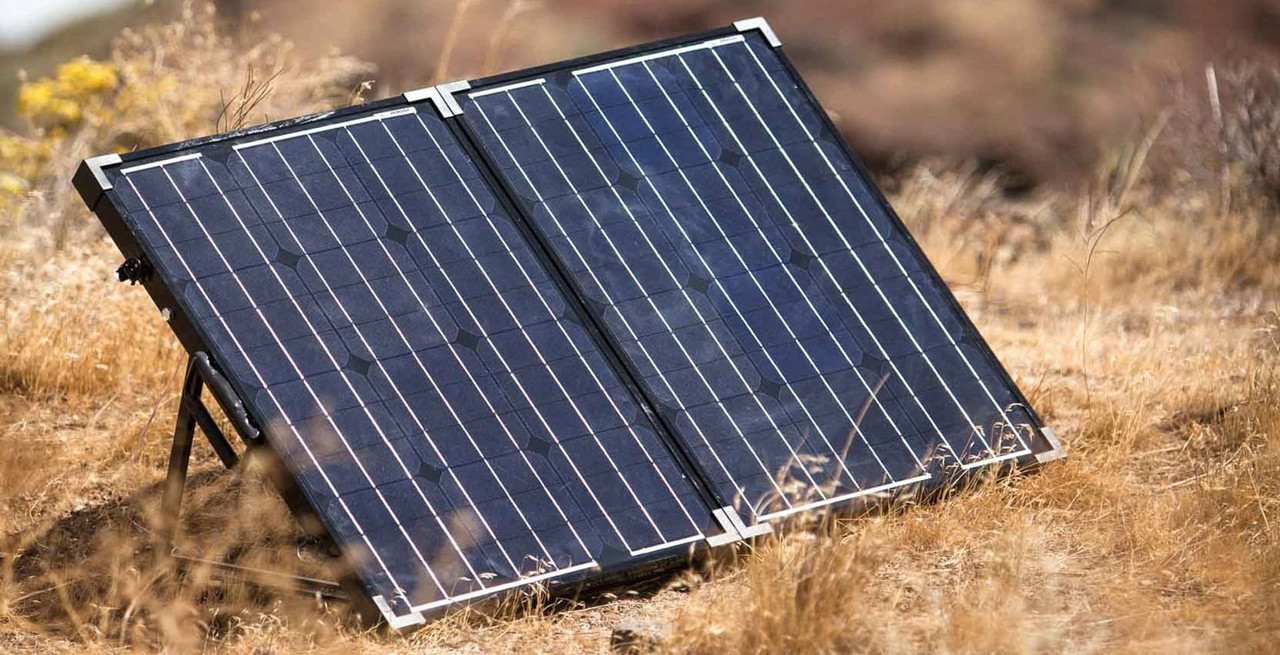Solar panel performance: how much does location and tilt matter?
Everyone and anyone can see some benefit from installing solar power in their home or business. Alongside the cost savings, solar panels are an eco-friendly and renewable energy source.
But many people switch to solar power primarily to save money. While everyone can save, some solar power users will find they get a better return on investment for their solar panel's performance. The reason some solar panels perform better comes down to two main factors, location and tilt.
It's a common misconception that you can't switch to solar power unless your roof is at the perfect angle and you live in a very sunny state. But in reality, most homeowners can successfully install solar panels regardless of their roof's location, material, or dimensions.
Solar power can reduce your energy costs at home or for your RV, boat, van, or tiny house in almost all situations. But to see the very best possible performance from your solar panel installation, you should install the system at the ideal tilt and location.
How do you measure the performance of a solar panel?
Solar panel performance measures how well your solar panel set up can convert sunshine into electricity successfully. Not all solar panel installations can produce the same levels of energy, even if they are the same model and size. There are several external factors that play a part in determining the solar panel's performance.
Performance should not be confused with efficiency. Efficiency looks at different solar panels and judges how effective they are. A more efficient solar panel can produce more electricity than a less efficient panel if compared under the exact same conditions.
However, two solar panels with the same efficiency rating could differ in performance if compared under different conditions. Therefore the same two panels can perform differently based on geographic location or installation angles.
For ongoing solar panel monitoring, you can use a multimeter or your solar power monitor. Many solar panel kits will come with built-in performance monitoring, and grid-tied installations will also track performance. A monitor or multimeter will tell you how much energy your system is producing at any given time.
You can also monitor changes in performance over your solar panel's lifetime. Sometimes snow, leaves, or the build-up of other debris can block sunlight and affect performance. If you notice some decrease in your system’s performance it can be a warning to homeowners that it's time to do some solar panel maintenance.
What are some factors that affect solar panel performance?
How do you know if your solar panel is performing to its optimal ability? Besides location and tilt, several other factors can impact solar panel efficiency. These include:
- Shade and sunlight: The amount of shade over your roof (or property using ground mounts) can impact the amount of sunlight your panels receive. Shade limits a solar panel's ability to produce power.
- Weather and seasonal climate: The geographical location and seasonal climate in your area can also impact performance. More sunlight equals more power, while overcast or rainy weather negatively impacts energy output.
- Solar panel quality: The age and quality of your solar panels can also impact performance. Solar panels have a long lifespan, but newer, high-quality solar PVs generally use better technology than older versions.
- Panel tilt/angle: the tilt or angle of your solar panels plays a big part in your energy production and is one of the easiest factors to control.
- Geographic location and roof orientation: your geographic location in relation to the sun and the location or orientation of solar panels can both impact performance.
Of course, you don't have to live in the sunniest state or have the perfect south-facing roof to reap the rewards of solar power - but these ideal conditions can certainly help your performance! But, for the average homeowner, weather and shade factors are out of your control. The more straightforward factors to control are the location where you install your panels and the tilt they are installed at.

What is the optimal angle to tilt your solar panels?
When installing solar power in your home in a vehicle, you shouldn't underestimate how important the orientation and tilt of your solar panels really are!
Why does tilt matter?
The tilt of your solar panels is crucial because the panels can only produce their maximum energy output when directly perpendicular to the sun. At other times, your panels can still produce energy, but not to the maximum capacity. The longer your panels are perpendicular to the sun, the more energy your system can produce.
Because the world is round, the optimal solar panel tilt differs from one location to another. For example, in the northern hemisphere, the winter sun is low in the sky in relation to the horizon. Therefore, a steep angle of 60° is best for your solar panels to reach their ideal level of performance.
But at other times of the year, the perfect tilt can differ. For example, during the spring, the perfect angle is 45 degrees, but in the summer months, a low tilt at 20 degrees works best because the sun is high in the sky.
It's possible to adjust the tilt of some panels. But for most people, climbing on the roof and changing the angle of your solar panels every season is not possible. Therefore, you should choose an installation tilt based on the peak energy needed.
For most people, energy costs are higher in the winter, and there are fewer sunlight hours in a day. Therefore, you should angle your solar panels so they can optimally produce more energy in the winter and less in the summer.
What's the ideal location for solar panels?
Where you install your solar panel matters just as much as the tilt, the best location for solar panels is on south-facing roofs. South-facing roofs receive the most sunlight so that they can create the most solar power during the day.
Usually, the location of your property and roof is predetermined before you decide to add solar panels. But if you're developing a property or building from scratch, be sure to consider your solar panel performance in your plans.

Working with a less than ideal location
If a south-facing roof is not possible, don't despair - it's still possible to install solar panels. In many cases, your house's roof already has a predetermined inclination and slope, so compromises must be made. If a roof-mounted solar system isn't ideal on your property then ground-mounted solar panels can be an efficient alternative.
Does roof pitch matter in solar installations?
The pitch of your roof has less influence on performance than you might imagine. Over the course of the year, the performance of different pitches of roofs will usually balance out because the solar panels will produce different energy levels across the four seasons.
When reviewed over a twelve-month period, there is no vast difference in energy performance from solar panels on a shallow (15 degrees) roof compared to a steep (45 degree) roof. In the winter months, steep roofs can produce more energy, while solar panels on a shallow roof can capture more sunlight in summer. If you need to reserve some solar energy, you can add a solar battery to your setup and store excess power during peak times.
Conclusion
A high-performing solar panel installation can have a big impact on both your annual bills and the environment.
The ideal panel tilt and roof orientation will generate better returns on your solar investment, but those with a less than perfect solution shouldn't be deterred from making the switch to solar power. Solar panels can still deliver financial returns even in places with poor weather and less than ideal sun exposure.
To start planning your switch to solar power, explore our range of solar panels for home, RV’s vans, or boats.
See other related articles at Renogy:
Solar Panels 101: A Beginner's Guide
The Ultimate Guide To DIY Off-Grid Solar Systems
Do solar panels increase home value








